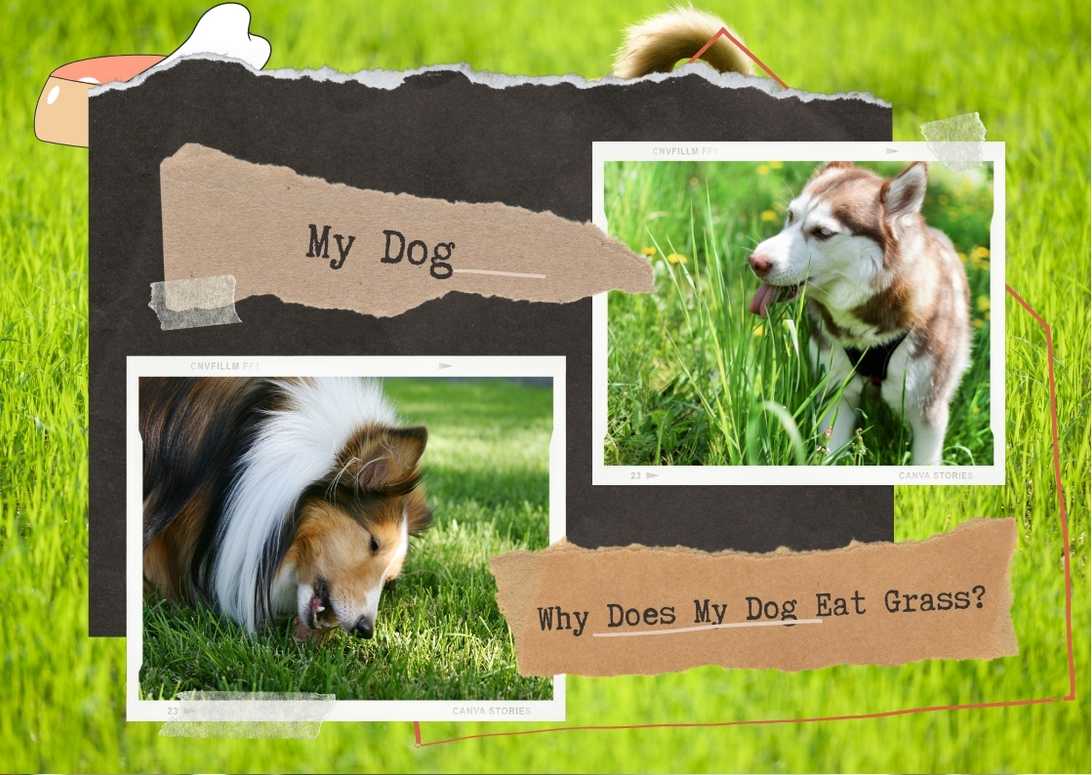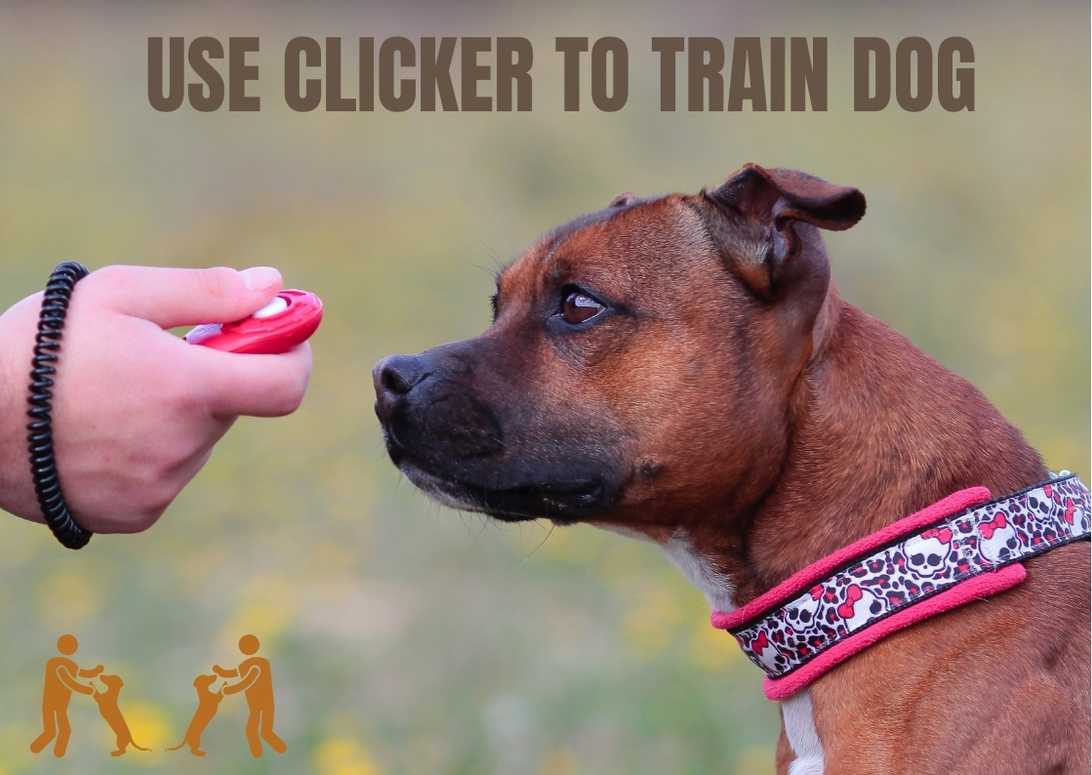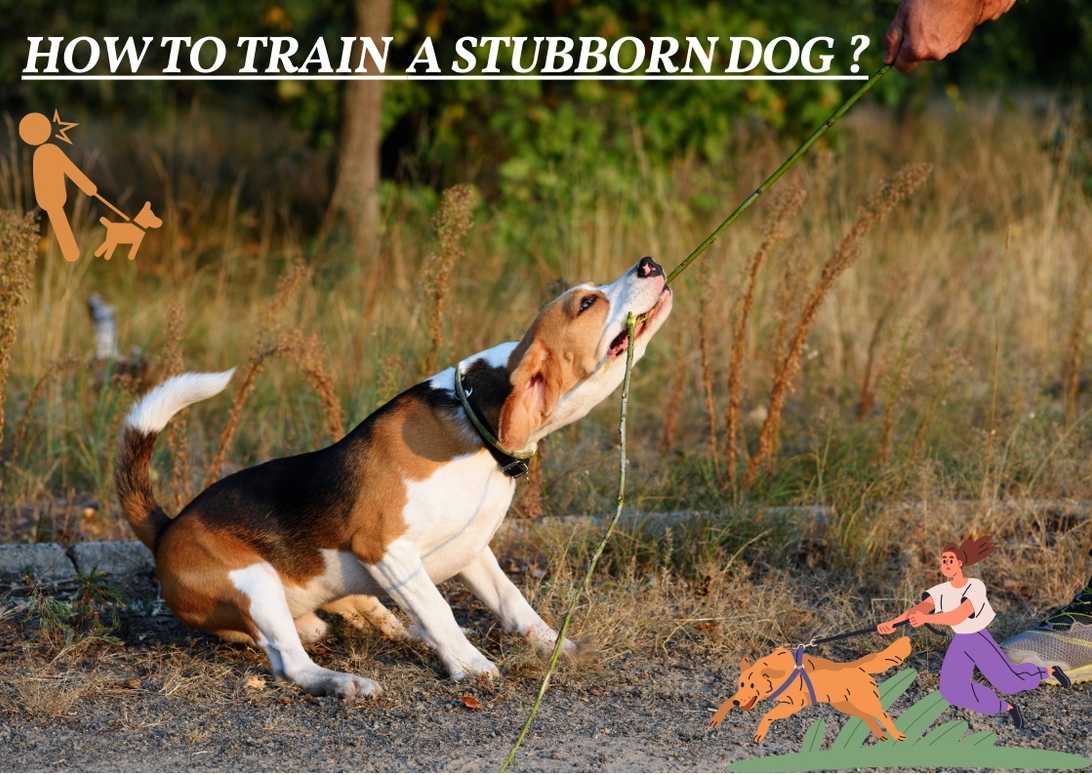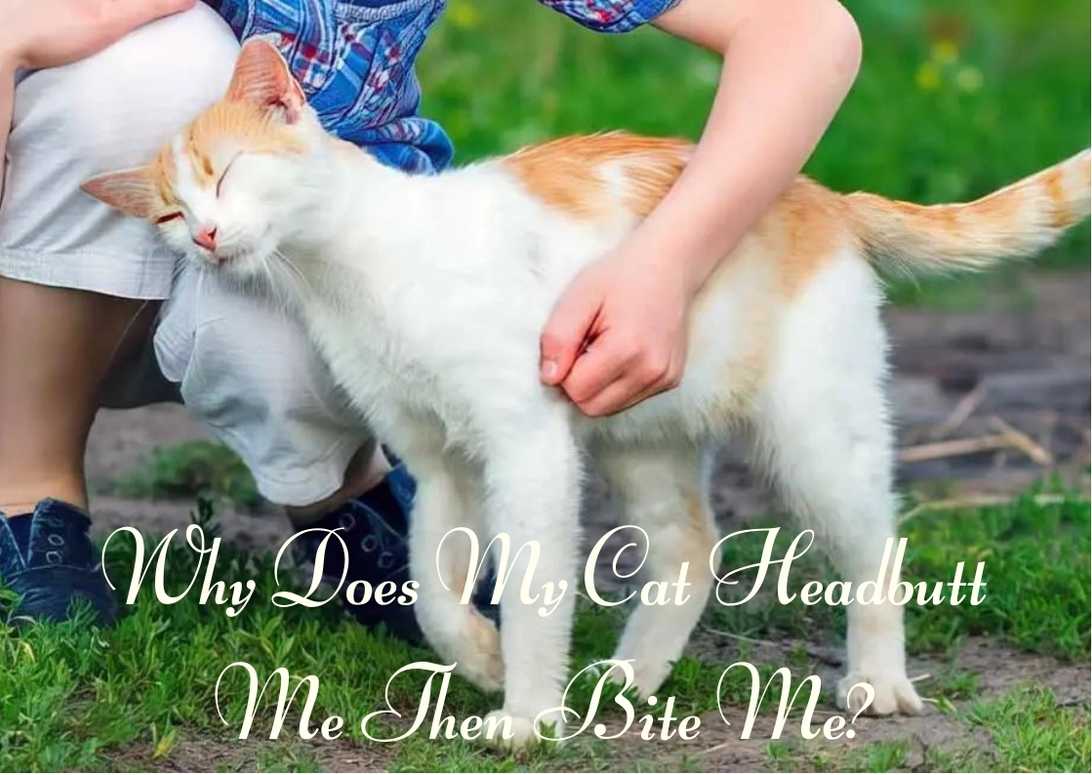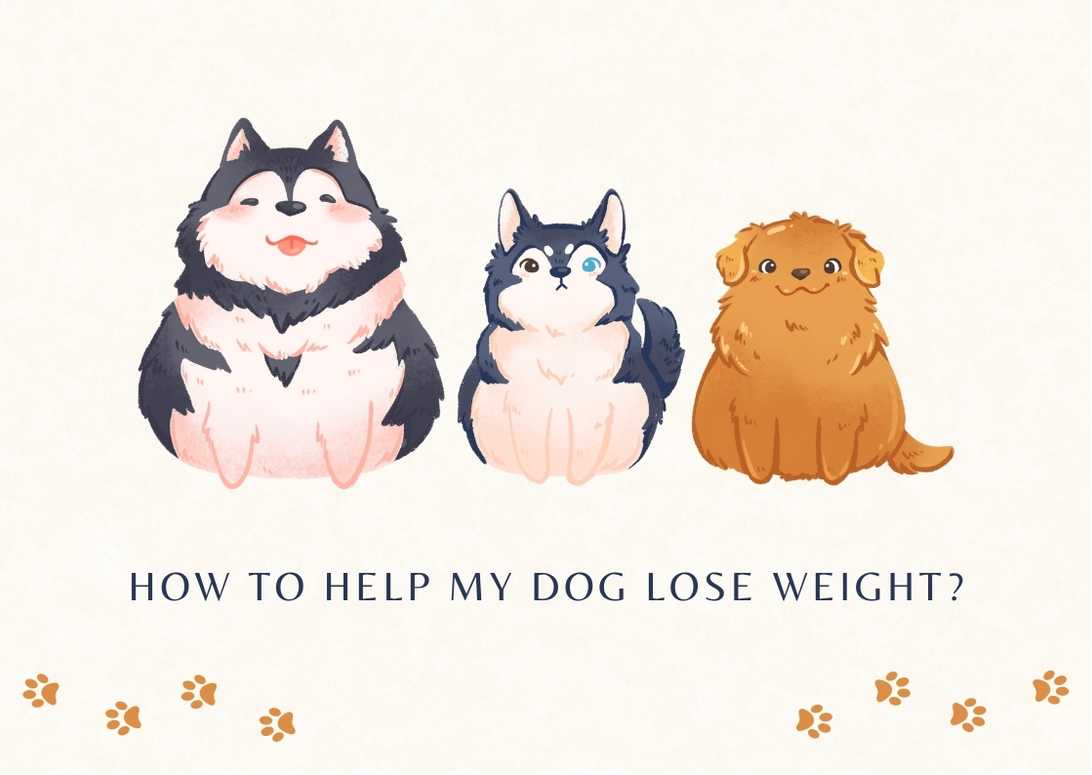Why Does My Dog Eat Grass?
As a dog owner, have you ever wondered why your furry companion has a peculiar penchant for munching on grass? It’s like they’re grazing in their own little pasture! Well, let me tell you, there’s more to this canine behavior than meets the eye.
In this article, we’ll dive into the mysteries behind why dogs eat grass and unravel the possible reasons behind this seemingly strange habit.
You may think that your dog is just being curious or perhaps even a bit bored, but there could be a valid explanation behind their grass-eating antics. Just like us humans, dogs require roughage in their diets to help keep things moving along smoothly in their digestive systems. And guess what? Grass happens to be an excellent source of fiber for our four-legged friends! So, while it may seem odd to see Fido chomping away on those green blades, it could actually be his way of ensuring he gets enough roughage in his diet.
But hold on tight because we’re just getting started – there are even more fascinating reasons why dogs eat grass that we’ll explore together.
Important Points
- Grass-eating behavior is normal for dogs as it is part of their natural instincts and foraging behavior.
- Dogs may eat grass to obtain roughage in their diet, improve digestion, and prevent constipation and other digestive issues.
- Grass can act as a digestive aid for dogs, providing dietary fiber that aids in digestion and nutrient absorption.
- Excessive grass consumption may be a sign of nutritional deficiencies or worm infestation, and prompt veterinary attention and preventative measures should be taken.
Reasons for Grass Consumption
While it’s true that dogs often eat grass due to boredom or nutritional deficiencies, there are also other fascinating reasons behind their consumption of this greenery. One possible health risk associated with dogs eating grass is the potential ingestion of pesticides or herbicides that may have been applied to the grass. These chemicals can be harmful to dogs and may cause gastrointestinal upset or even more serious health issues.
Additionally, some types of grass can be toxic to dogs, such as certain varieties of Bermuda grass or ryegrass. It’s important for dog owners to be aware of the types of grass in their environment and take precautions to prevent their pets from consuming potentially harmful varieties.
Interestingly, different dogs may have preferences for certain types of grass. Some dogs may gravitate towards longer blades of grass while others prefer shorter ones. The reason behind these preferences is not entirely clear, but it could be related to texture or taste. To prevent excessive grass consumption, it’s important for dog owners to provide plenty of mental and physical stimulation for their pets so they don’t become bored and turn to eating grass out of habit. Regular exercise, interactive toys, and training sessions can all help keep a dog mentally stimulated and reduce the likelihood of them seeking out grass as a form of entertainment.
In addition to providing mental stimulation, ensuring proper dental health is another way to prevent excessive grass consumption in dogs. Chewing on fibrous materials like grass can help remove plaque buildup on a dog’s teeth and promote better oral hygiene. However, if a dog is excessively chewing on grass due to dental issues such as tooth decay or gum disease, it’s important to address those underlying problems with proper veterinary care.
As mentioned earlier, nutritional deficiencies are one reason why dogs eat grass.
Nutritional Deficiency
Despite their varied diet, I sometimes crave a little green goodness to supplement my nutrition. There are times when I might have a nutritional deficiency that leads me to eat grass. Grass contains dietary fiber, which is essential for proper digestion and helps with nutrient absorption.
If I’m not getting enough fiber in my balanced diet, eating grass can help improve my digestive health by adding that much-needed roughage. It’s important for my overall well-being that I maintain a healthy digestive system, and consuming grass can be a natural way for me to achieve that.
However, it’s important to note that while eating grass can provide some benefits, it shouldn’t be the sole source of nutrients in my diet. Grass doesn’t offer all the necessary vitamins and minerals that I need to stay healthy. So even though I might occasionally munch on some greens, it’s still crucial for my human companions to ensure I’m receiving a well-rounded diet with all the essential nutrients.
Now let’s move on to another fascinating aspect of my behavior – why do dogs eat grass as part of our natural instincts?
Natural Behavior
Get ready to uncover the fascinating reasons behind your furry friend’s instinctual grass-eating behavior! Dogs have playful behaviors and foraging instincts that are deeply ingrained in their natural instincts. Eating grass is just one way they express these instincts and engage in outdoor activities. It’s like a form of enrichment activity for them, allowing them to explore their surroundings and satisfy their need for mental stimulation.
When dogs eat grass, it’s not necessarily because they’re hungry or lacking nutrients. Instead, it’s more about satisfying their innate desire to interact with nature and engage in a natural behavior. Just like how we might go for a walk or play a game to keep ourselves entertained, dogs may munch on grass as a way to entertain themselves and feel connected to the outdoors.
This playful behavior is completely normal and should not be cause for concern unless your dog is eating an excessive amount of grass or showing signs of illness afterwards. So, next time you see your furry friend nibbling on some greens, remember that it’s likely just their way of enjoying an outdoor activity. Speaking of which, let’s delve into how this seemingly innocent behavior can actually serve as a digestive aid.
Digestive Aid
Improve your furry friend’s digestion and keep their bodily functions running smoothly with a little helping of nature’s fiber: grass! Dogs have been known to eat grass as a natural behavior, and it turns out that there are actually health benefits to this seemingly strange habit. Grass acts as a digestive aid for dogs, providing them with dietary fiber that helps regulate their digestive system. The roughage in grass aids in food digestion and helps the dog pass stool more easily.
So if you notice your dog munching on some greens, don’t worry, they may just be trying to give their digestive health a boost! Grass can be seen as a natural remedy for dogs when it comes to maintaining their digestive health. While they may not get much nutrition from it, the fiber content in grass can help prevent constipation and other digestive issues. Adding grass as a supplement to your dog’s diet can provide them with the extra fiber they need to keep things running smoothly. However, it’s important to ensure that the grass your dog is eating is free from pesticides or any harmful chemicals.
Now let’s explore another reason why dogs eat grass: boredom and entertainment.
Boredom and Entertainment
Looking for a way to keep your furry friend entertained? Why not consider the fascinating reason behind their grass-munching habit?
Dogs may eat grass out of sheer boredom and the need for entertainment. Just like humans, dogs can get bored easily, especially if they’re left alone for long periods of time or don’t have enough mental stimulation throughout the day. To combat this boredom, it’s important to provide them with interactive toys, puzzle games, and training exercises that engage their minds and keep them occupied. These activities not only provide entertainment but also help keep their brains active and sharp.
In addition to indoor activities, outdoor activities are essential for a dog’s overall well-being. Taking your pup on regular walks or engaging in playtime in the yard can prevent boredom-related behaviors such as excessive grass-eating. Not only will they enjoy exploring new scents and sights outside, but they’ll also get much-needed exercise to tire them out physically.
Mental stimulation coupled with physical activity is key in preventing boredom-related behaviors like grass-eating and helps ensure that your furry friend stays happy and healthy. Transitioning into the next section about instinctual reasons, we’ll explore why dogs have an innate desire to munch on grass even when they’re not bored or seeking entertainment.
Instinctual Reasons
When your furry companion has an irresistible urge to munch on grass, it’s their instinctive way of connecting with their wild ancestors who would consume plants for various reasons such as aiding in digestion or obtaining essential nutrients.
Grazing behavior is deeply ingrained in dogs due to their evolutionary adaptations and canine instincts. Just like wolves and other canines, dogs have foraging tendencies that drive them to explore and interact with their environment in search of food. Even though domesticated dogs no longer rely on hunting for survival, they still possess these natural dietary preferences that include consuming vegetation.
Imagine your dog exploring a vast field, sniffing the air with excitement before carefully selecting a patch of grass to nibble on, savoring the taste and fulfilling their innate need for connection to their primal roots. This behavior is completely normal and should not be a cause for concern unless it becomes excessive or leads to digestive issues.
Dogs may instinctively know that grass can provide certain benefits like fiber, additional nutrients, or even help stimulate bowel movements when needed. It’s important to remember that our modern-day pets have retained many of the traits from their wild ancestors, and grazing on grass is just one manifestation of this primal connection.
Moving forward into the subsequent section about ‘worm infestation,’ it’s crucial to understand how this common health issue can impact our furry friends’ overall well-being.
Worm Infestation
One fascinating aspect of worm infestation in dogs is the detrimental impact it can have on my overall health and well-being. Worms are parasites that can live inside a dog’s body, feeding off their nutrients and causing various health issues.
If I’m infested with worms, it could explain why I’ve been eating grass lately. Worms can deplete my body of essential nutrients, leading to nutritional deficiencies. This may trigger a craving for grass as a way to supplement those missing nutrients.
To address this issue, it’s important for my owner to take preventative measures by regularly using parasite prevention methods such as flea and tick treatments. Additionally, deworming medication should be administered periodically to eliminate any existing worms in my system. It’s crucial for my owner to be aware of the symptoms of worm infestation, which include weight loss, diarrhea, vomiting, and a dull coat. If these signs are observed, prompt veterinary attention is necessary.
Treatment options for worm infestation vary depending on the type of worms involved. Common treatments include oral medications or topical applications specifically designed to target different types of worms. Regular fecal exams should also be conducted to monitor the effectiveness of treatment and ensure that no re-infestation occurs.
If I’m eating grass due to worm infestation, it’s important for my owner to take immediate action by using parasite prevention methods and administering deworming medication as recommended by a veterinarian. By addressing this issue promptly and taking preventative measures in the future, we can ensure that I stay healthy and free from worm infestations.
Frequently Asked Questions
Can eating grass be harmful to my dog?
Eating grass can be harmful to dogs if they consume toxic plants or pesticides. While it may help with digestion and provide fiber, excessive grass eating could indicate nutritional deficiencies or underlying health issues.
Is it normal for my dog to vomit after eating grass?
It’s common for dogs to vomit after eating grass, but it’s not necessarily normal. Dogs may eat grass for various reasons like nutritional deficiencies or upset stomachs. Excessive vomiting or other health issues warrant a vet visit.
How can I prevent my dog from eating grass?
To prevent my dog from eating grass, I can use training methods to teach them a “leave it”command. Additionally, I can provide dietary supplements to address any nutritional deficiencies and engage them in environmental enrichment activities for mental stimulation. Behavioral redirection techniques can also be helpful. If the behavior persists, consulting a veterinarian is recommended.
Are there any alternative sources of fiber I can provide for my dog?
Yes, there are alternative sources of fiber I can provide for my dog. Vegetable scraps, pumpkin puree, cooked sweet potatoes, chia seeds, and flaxseed meal all make great additions to their diet.
Should I be concerned if my dog eats grass excessively?
If my dog eats grass excessively, I should be concerned about potential health risks and possible dietary deficiencies. Excessive grass eating can also be due to behavioral reasons. It may impact digestion. To address this behavior, I can provide alternative sources of fiber and consult a veterinarian for guidance.
Conclusion
In conclusion, after diving into the puzzling world of canine behavior and exploring the reasons behind why dogs eat grass, it becomes clear that there’s more to this habit than meets the eye.
While some may dismiss it as mere curiosity or boredom, it’s important to recognize that dogs may be instinctively seeking out roughage in their diets. Just like humans need fiber for proper digestion, our furry friends have their own way of obtaining this essential nutrient.
Additionally, grass consumption could also serve as a natural behavior for dogs, harkening back to their ancestors who relied on plant material for survival. It could be an instinctual way for them to balance out their diet and provide additional nutrients that they may not get from their regular meals.
Moreover, eating grass can act as a digestive aid for dogs by helping them alleviate stomach discomfort or induce vomiting when necessary.
To truly understand why our beloved companions engage in this peculiar behavior, we must consider all these factors and reflect on how we can support their overall well-being. So next time you see your dog nibbling on blades of grass in the backyard, remember that they’re simply following an age-old instinct or trying to meet a dietary need.
Just like us humans have our own unique quirks and habits, our furry friends have theirs too – even if it involves munching on greens.

